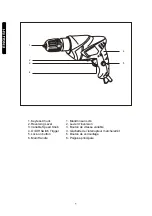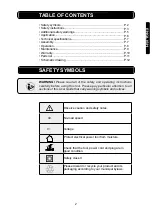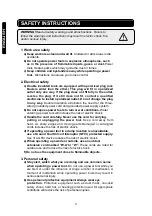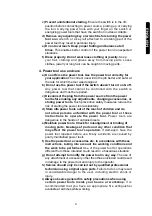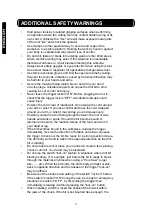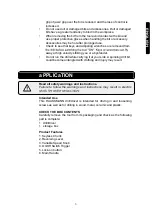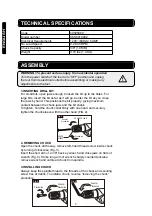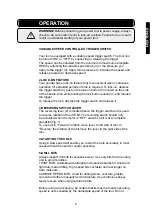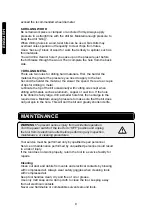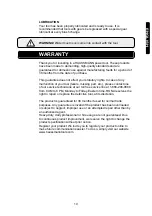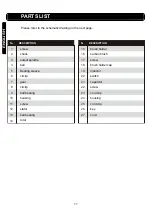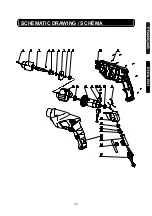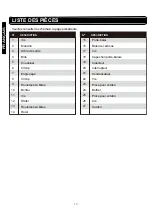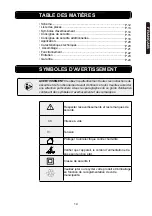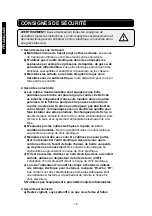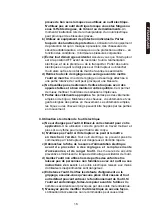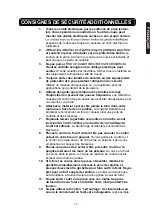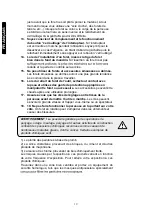
ENGLIS
H
c) Prevent unintentional starting.
Ensure the switch is in the off-
position before connecting to power source, picking up or carrying
the tool. Carrying power tools with your finger on the switch or
energizing power tools that have the switch on invites accidents.
d) Remove any adjusting key or wrench before turning the power
tool on.
A wrench or a key left attached to a rotating part of the
power tool may result in personal injury.
e) Do not overreach. Keep proper footing and balance at all
times.
This enables better control of the power tool in unexpected
situations.
f) Dress properly. Do not wear loose clothing or jewelry.
Keep
your hair, clothing and gloves away from moving parts. Loose
clothes, jewelry or long hair can be caught in moving parts.
4. Power tool use and care
a) Do not force the power tool. Use the power tool correctly for
your application.
The correct use will do the job better and safer at
the rate for which the tool was designed.
b) Do not use the power tool if the switch doesn’t turn it on & off.
Any power tool that cannot be controlled with the switch is
dangerous and must be repaired.
c) Disconnect the plug from the power source from the power
tool before making any adjustments, changing accessories, or
storing power tools.
Such preventive safety measures reduce the
risk of starting the power tool accidentally.
d) Store idle power tools out of the reach of children and do
not allow persons unfamiliar with the power tool or these
instructions to operate the power tool.
Power tools are
dangerous in the hands of untrained users.
e) Maintain power tools. Check for misalignment or binding of
moving parts, breakage of parts and any other condition that
may affect the power tool’s operation.
If damaged, have the
power tool repaired before use. Many accidents are caused by
poorly maintained power tools.
f) Use the power tool, accessories etc. in accordance with these
instructions, taking into account the working conditions and
the work to be performed.
Use of the power tool for operations
different from those intended could result in a hazardous situation.
g) Do not attempt to modify the power tool in any way.
The use of
any attachment or accessory other than those included could result
in damage to the power tool and injury to the operator.
h) Service should only be carried out by qualified professional
technician using original spare parts.
Failure to do so may result
in considerable danger to the user, including electric shock or
injury.
i) always observe general fire safety precautions when using
certain power tools inside your house or workshop.
It is
recommended that you have an appropriate fire extinguisher
available at all times while working.
4


